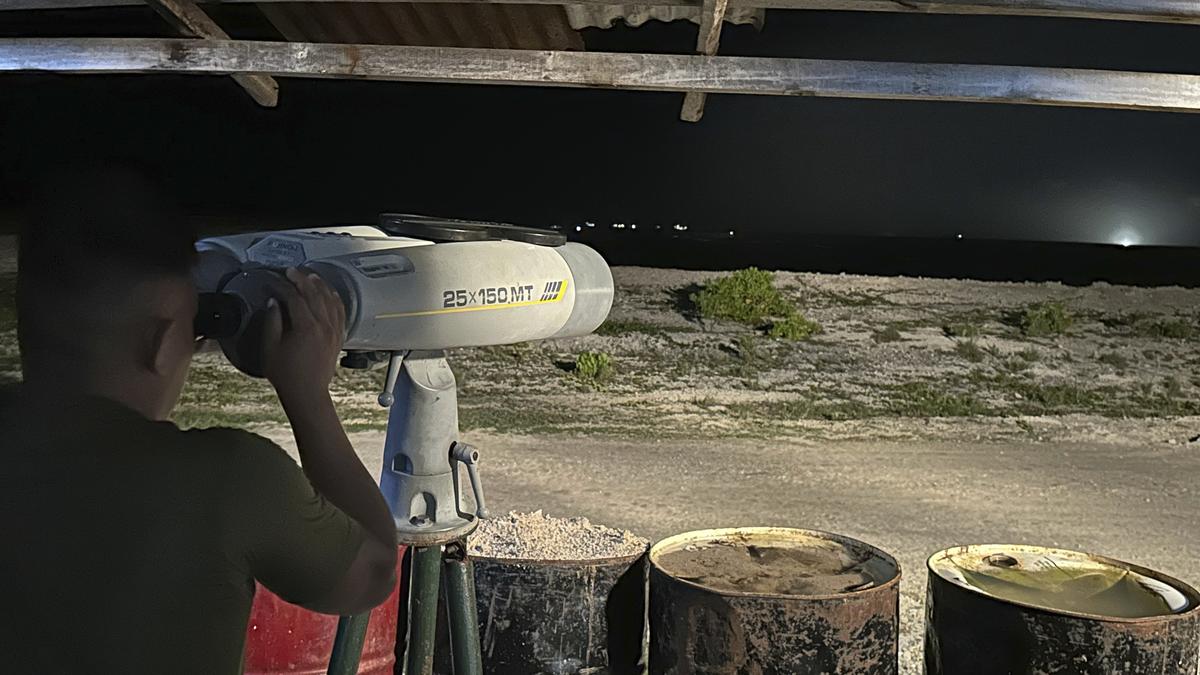
Taiwanese President Lai Ching-te visits the Republic of China Military Academy, an officer training academy, for its 100th anniversary celebrations in Kaohsiung, Taiwan in 2024.
| Photo Credit: REUTERS
On May 20, Taiwanese President Lai Ching-te celebrated a year in office. And while Mr. Lai’s celebratory speech presented a vision of cooperation with rival stakeholders, the second year of his presidency is off to a rocky start. If the recall campaign facing legislators of the two main parties — the Democratic Progressive Party (DPP) and the Kuomintang (KMT) — comes to fruition, it may be both a display of democratic vibrance, and indicative of volatility in the political corridors of Taipei.
Yielding the Yuan
Mr. Lai’s biggest policymaking hurdle since the beginning of his tenure has been that his party, the DPP, had failed to achieve a majority in the Legislative Yuan. Of the 113 parliamentary seats, 52 were won by the main opposition party, the KMT, and 51 by the DPP. Eight seats were won by a third party closely aligned with the KMT — the Taiwan People’s Party (TPP). The remaining two seats went to independent candidates who, again, are believed to be ideologically aligned with the KMT. Subsequently, the KMT has blocked vital steps to secure Taiwan’s internal democratic and legal processes, as well as its defence preparedness.
For example, in December 2024, the KMT pushed amendments to the ‘Act Governing the Allocation of Government Revenues and Expenditures’. The Act was amended for the first time in 25 years, and its new text restricted the central government’s budgetary decision-making powers, especially in the defence sector. Now, the central government is liable to disburse more funds to local governments, bringing the ratio of the central-to-local tax revenue share from 75:25 to 60:40, the pre-1999 amendment levels. KMT’s controversial manoeuvres during Mr. Lai’s tenure go back a year. In May 2024, one of the bills put forth jointly by the KMT and the TPP made the case that it should be compulsory for the president-elect to address the Yuan post-inauguration, and conduct an on-the-spot question-and-answer session with legislators. In the past, this had been optional for the President. Historically, no sitting Taiwanese president has been subject to it. Despite this, KMT and TPP lawmakers proposed that it be made mandatory for Mr. Lai which led to scuffles in the Yuan.
DPP lawmakers have also alleged that the KMT introduced amendments to laws on the legislature’s powers, without going through mandatory processes. These processes include first hashing out bills at a procedural committee meeting, and then forwarding them for a first and second reading to the legislative floor, before the eventual vote. However, KMT lawmakers have opposed the allegations.
On the brink of dismantling?
Today, the ideological and political rift is evident in something more serious — a series of recall campaigns (a mechanism through which voters can remove a sitting legislator and ask for re-election) targeting as many as 37 KMT legislators and 15 DPP ones. The initiators of the petitions for the KMT recall campaigns seem to all be citizen groups, including from constituencies through which KMT legislators won a seat in the Yuan.
Many KMT lawmakers are in the second stage of the recall process, where 10% of the electorate in a constituency signs a petition to initiate a recall vote. In a face-saving move, KMT lawmakers, too, initiated a recall campaign against DPP parliamentarians, and have shot themselves in the foot by forging signatures on behalf of voters who were declared dead sometime in the past year. It now seems that by June, a huge batch of lawmakers (of which a greater majority belong to the KMT) may have to vacate their Yuan seats. It all depends on the validity of the signatures submitted to the Central Election Commission. Names of the first set of recalled legislators may even be available as early as late June-early July, when the third and final stage, the recall vote, comes to fruition.
A rift beyond repair
Under Mr. Lai, the rift between the KMT and the DPP is especially apparent, because the KMT previously never occupied a majority in the Yuan when a member of the DPP party (Tsai Ing-Wen or Chen Shui-Bian) was President. The transformation of this legislative deadlock into a mass recall campaign means that democracy is alive through the exercise of citizens’ rights to re-election. But it also means that even KMT lawmakers who won a majority in the 2024 elections are losing hold of their electorate.
Historically, the KMT has been a party that promotes dialogue over deterrence with China, while the DPP is relatively more vocal against reunification. With changing sentiments among the youth, the KMT’s narrative and pitch were already unappealing, even though they won Yuan seats due to dissatisfaction with the DPP’s economic and diplomatic performance during Ms.Tsai’s two tenures before Mr. Lai. As the ideological rift materialises into a deadlock, Mr. Lai has two options. He can either continue to emphasise deliberations with the KMT to avoid mass recall, including by inviting opposition parties to the table for a meeting on national security. His other option is to put the weight of the DPP behind KMT recall petitioners, and prepare a policy agenda so strong that by-elections yield majority seats for the DPP. Either way, this would be a historic moment in Taiwanese politics.
Anushka Saxena is a staff research analyst at The Takshashila Institution.
Published – June 04, 2025 08:30 am IST


